Eleventh Circuit Rules That Insurer Must Defend Contractor Despite “Your Work” Exclusion, Where Damage Timing Unclear
May 13, 2019 —
Michael S. Levine & David M. Costello - Hunton Andrews KurthThe Eleventh Circuit has reversed an insurer’s award of summary judgment after finding that uncertainty about when the alleged property damage occurred raised questions about whether the damage came within the scope of the “Your Work” exclusion. More specifically, the court found unclear whether the damage occurred before or after the contractor abandoned the job, thereby triggering an exception to the “Your Work” exclusion for damage to work that had “not yet been completed or abandoned.” The decision illustrates how timing can be a critical factor when it comes to triggering coverage for work and completed operations.
In Southern-Owners Insurance Company v. MAC Contractors of Florida, LLC, a pair of trustees hired MAC Contractors (doing business as KJIMS Construction) to serve as the general contractor for a custom residence. After construction began, disputes between the trustees and KJIMS caused the contractor to abandon the job before completing the project. The trustees followed with a lawsuit alleging, among other things, that KJIMS had damaged wood floors and a metal roof, which KJIMS had promised to remediate but never did.
Reprinted courtesy of
Michael S. Levine, Hunton Andrews Kurth and
David Costello, Hunton Andrews Kurth
Mr. Levine may be contacted at mlevine@HuntonAK.com
Mr. Costello may be contacted at dcostello@HuntonAK.com
Read the court decisionRead the full story...Reprinted courtesy of
OSHA Issues Fines for Fatal Building Collapse in Philadelphia
November 27, 2013 —
CDJ STAFFThe Occupational Safety and Health Administration has issued $400,000 in fines to two contactors who were involved with the collapse of a building in Philadelphia. Six people died and 14 more were injured in an adjacent building. OSHA concluded that the two firms, Campbell Construction and S&R Contracting, violated workplace safety regulations 12 times in their demolition of the building.
According to OSHA, Campbell Construction removed structural supports and portions of the lower floors of the building while upper stories were still being demolished. Both firms failed to provide its workers with fall protection equipment.
Read the court decisionRead the full story...Reprinted courtesy of
Construction Defect Claim Not Timely Filed
January 27, 2020 —
Ryan M. Charlson - Florida Construction Law NewsIf construction defect claims are not timely filed, Florida Statutes provide design and construction companies with a formidable defense. As a case in point, a Miami-Dade Circuit Court Judge issued an Order granting summary judgment based on Fla. Stat. § 95.11(3)(c), Florida’s Statute of Limitations governing actions founded on alleged construction defects.
In Covenant Baptist Church, Inc. v. Vasallo Construction, Inc. and Lemartec Engineering & Construction Corporation, Plaintiff alleged multiple construction defects against two Defendants. The alleged defects were focused on water intrusion through the roofing systems and were known to the Plaintiff on August 13, 2006. However, four years and eleven months later, Plaintiff filed suit acknowledging that the building had “been plagued with water intrusion issues for a number of years,” and that Plaintiff’s complaints “regarding the water intrusion [had] been met largely with ‘band-aid’ type ineffective repairs.”
Lemartec Engineering & Construction Corporation (“Lemartec”), filed a Motion for Summary Judgment as to multiple counts and rested its Motion squarely on the shoulders of Florida’s four-year statute of limitations. Importantly, the statute begins to run “where there has been notice of an invasion of legal rights or a person has been put on notice of his right to a cause of action” Snyder v. Wernecke, 813 So.2d 213,216 (Fla 4th DCA 2002) (citing City of Miami v. Brooks, 70 So.2d 306 (Fla. 1954)). Plaintiff attempted to bypass the four-year nature of the statute by trying to classify the defects in question as latent.
Read the court decisionRead the full story...Reprinted courtesy of
Ryan M. Charlson, Cole, Scott & KissaneMr. Charlson may be contacted at
Ryan.Charlson@csklegal.com
Zero-Net Energy Homes Costly Everywhere but at the Electric Meter
August 27, 2013 —
CDJ STAFFOn one hand, your walls are about nine inches thick. On the other hand, your heating and cooling costs are nonexistent. Greenhill Contracting is building “zero-net energy” homes in New Paltz, New York. The homes are designed to create more power than they consume. In addition to the walls, which WDTN News describes as “castle thick,” the homes include solar panels, triple-glazed windows, and geothermal heating and cooling systems. The cost for a three-bedroom home in this development starts at about $400,000.
Meritage Homes is offering net-zero as an option on its homes. Based in Arizona, Meritage builds homes across the country. Another national builder, Shea Homes, calls its net-zero option “SheaXero,” and has built about a thousand in four western states and in Florida. One Arizona homeowner notes that she runs her air conditioner constantly, but “I still have never paid more than $18 and some change.” Sometimes she even gets a credit.
Read the court decisionRead the full story...Reprinted courtesy of
Emerging Trends in Shortened Statutes of Limitations and Statutes of Repose
January 02, 2024 —
Ivette Kincaid & Thomas McCarrick - Kahana FeldIntroduction
A growing trend in construction defect legislation around the country has seen the shortening of statutes of limitation and statutes of repose for a plaintiff to bring claims related to construction defects. Over the past ten years, several states, notably Florida and Texas, have shortened their statutes of repose. This is generally positive news for developers and contractors; however, the specifics and ramifications of these legislative and judicial updates are still unknown.
Statute of Limitations
A statute of limitations sets forth the time that a plaintiff has to sue or allege a particular cause of action against a defendant. These time limitations are codified into law and vary depending on the State and the cause of action. A statute of limitations starts at the occurrence of an injury or damage or at the time the injury or damage is discovered. The statute of limitations may be subject to some exceptions such as tolling for reasons such as the injured party being a minor in which case depending on the particular statute, the statute does not begin to run until after the minor reaches the age of majority.
Reprinted courtesy of
Ivette Kincaid, Kahana Feld and
Thomas McCarrick, Kahana Feld
Ms. Kincaid may be contacted at ikincaid@kahanafeld.com
Mr. McCarrick may be contacted at tmccarrick@kahanafeld.com
Read the court decisionRead the full story...Reprinted courtesy of
Construction Contract Basics: Attorney Fee Provisions
November 13, 2023 —
Christopher G. Hill - Construction Law MusingsI have discussed the need for
attorney fee provisions in your construction contracts in prior posts here at Construction Law Musings, but thought it merited a restatement of the reasons for the inclusion of such fee provisions (and changing of such provisions when presented) here with the second of my
construction contract basics posts.
Why would you want such a provision? The answer is that without it, or a statute specifically allowing for such fees, a Virginia court will not award your attorney fees without such a provision. Virginia, and a lot of other states, follow the so-called “American Rule” when it comes to attorney fees and costs. In short, that rule states that the parties to litigation pay their own way unless they agree otherwise. While it may seem unfair to make a successful litigant pay for the privilege of being right, that is the rule in Virginia. Throw in the fact that Virginia courts
strictly construe construction contracts and voila we have a situation where without a provision in the contract stating that one party or both will be able to collect attorney fees should that contractor or subcontractor prevail, a construction professional that gets sued (whether rightly or wrongly) will be left with a hefty attorney fees bill and no way to recoup those fees through the courts or any other method.
Read the court decisionRead the full story...Reprinted courtesy of
The Law Office of Christopher G. HillMr. Hill may be contacted at
chrisghill@constructionlawva.com
20 Years of BHA at West Coast Casualty's CD Seminar: Chronicling BHA's Innovative Exhibits
May 03, 2018 —
Beverley BevenFlorez-CDJ STAFFThe Bert L. Howe & Associates, Inc., (BHA) exhibit has been a fixture at West Coast Casualty's Construction Defect Seminar since the mid-1990's. Through the years, BHA has updated their display, but no matter what year, you could count on the BHA exhibit to provide a not-to-be-missed experience.
2008-BHA's sleek, rear projection display includes a screen that promotes the firm's capabilities that can be seen throughout the exhibit hall. This would be one of many innovations BHA has brought to the West Coast Casualty seminar.
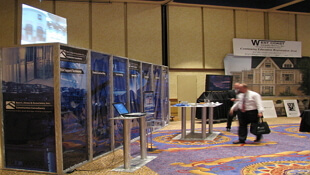
2009-With the success of the rear screen projection, BHA adds additional monitors to provide attendees with more information about BHA.
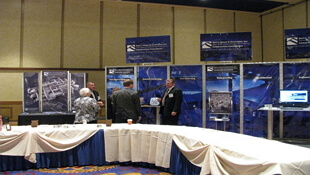
2010-BHA adds an interpretive professional development exhibit targeted to Building Envelope issues allowing adjusters and other non-construction professionals hands on access to the systems and components at the heart of many related such claims.



2011-BHA's Swing for Charity challenge is born.

2012-Always innovating, BHA expands its rear projection and professional development offerings to West Coast attendees.

2013-BHA showcases additional capabilities with a twenty-four foot, custom, convex, immersive video experience.

2014-BHA adds an iPhone display to give a hands-on demonstration of their data collection methods.
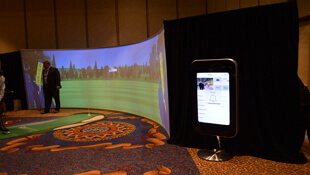
2015-BHA's twenty-four foot , custom, convex, immersive video experience was elevated with two additional rear projection screens, reflecting BHA's newest capabilities and services.

2016-BHA dazzles attendees with their new exhibit comprised of more than 15 integrated, high definition, LCD displays. iPads are stationed on tables to conveniently demonstrate BHA's data collection processes.
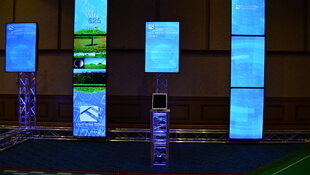
2017-BHA's Swing for Charity Golf Challenge raised $2,225.00 for the National Coalition for Homeless Veterans and $1,900 for Final Salute.
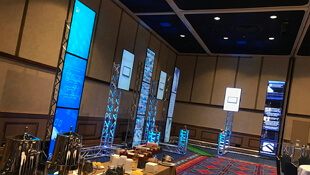
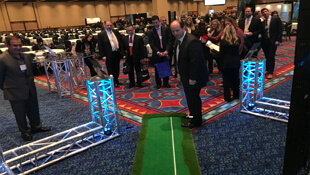
Read the court decisionRead the full story...Reprinted courtesy of
Apartment Construction Increasing in Colorado while Condo Construction Remains Slow
March 12, 2014 —
Beverley BevenFlorez-CDJ STAFFDennis Huspeni writing for the Denver Business Journal reported that Colorado is having a surge of new apartment construction, but very little condominium building. According to Huspeni, “some business leaders and government officials worry that Colorado’s construction defect laws” are the reason for the lack of condominium construction.
Huspeni in the Denver Business Journal alleged that there is a large “liability risk for builders, developers and subcontractors” because current state laws “make it easier for homeowners’ associations to file large, class-action lawsuits against builders for construction problems associated with new condominiums.”
Huspeni spoke with John Batug, senior vice president and regional manager of Wells Fargo’s community banking real estate group, who stated that condo development usually occurs at the same rate as apartment development. Batug alleged that construction defect litigation “seems to have pushed that component of the market out.”
A bill that is supposed to “jump-start” the “condominium construction sector will be introduced this session, but its sponsor said he remains unsure what types of legal reform will be a part of it,” reported Ed Sealover in the Denver Business Journal.
Lakewood Mayor Bob Murphy told Sealover that “city and business leaders would like to see two particular changes in the law: 1.They want to require a super-majority of condo owners to have to agree to legal action before any lawsuit is filed — instead of just needing two of them to move forward. 2.They want a requirement to attempt some sort of alternative dispute resolution before a suit can be filed.”
However, not everyone is in favor of the proposed suggestions. Jonathan Harris, vice president of The Point Homeowners Association, told Sealover that the “bill that the Metro Mayors Caucus wants ignores the fact that arbitration can be an expensive process for property owners.”
Read the full story, Huspeni Article...
Read the full story, Sealover Article... Read the court decisionRead the full story...Reprinted courtesy of




































































